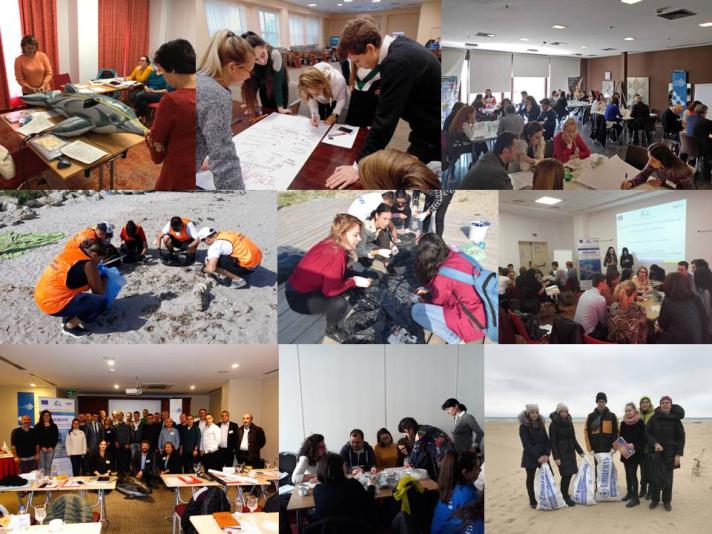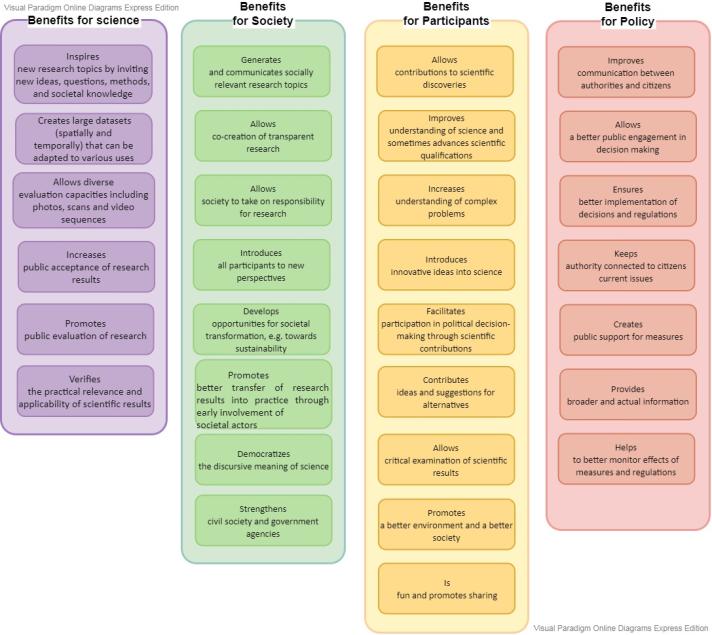Citizen Science is a very important aspect and useful resource these days, and the added value brought by citizens for science, research, and policy, will represent an essential step made to have the actions carried out focused on the real needs of the community.
Thinking of the definition of the concept, citizen science can be defined as the non-professional involvement of volunteers in the scientific process, commonly in data collection, but also in other phases of the scientific process, such as quality assurance, data analysis, and interpretation, problem definition, or dissemination of results. This is mostly connected with the environmental domain, because it provides an opportunity to expand the knowledge base, through local involvement, and at the same time it provides an increase in citizens' awareness and engagement.
Citizen science was used in the ANEMONE project by all involved partners, in four Black Sea riparian countries (Bulgaria, Romania, Turkey, and Ukraine). Having in mind the previous experience of the partners involved in the Citizen Science activity, the Anemone project offered a very good framework to implement Citizen Science at the Black Sea basin level. The purpose was to prove that citizens can provide real, useful, and accurate data for scientists to use.
The project partners involved citizens in two main activities during the project implementation, like marine litter monitoring and cetaceans monitoring. 248 participants, from 4 countries, were involved in 26 area surveys, and with their help, 64.703 items of marine litter were removed from the beaches. Speaking about cetacean surveys, 163 people were trained about how to monitor the cetaceans and over 2.000 people were involved in monitoring and data collection. Just by looking at the numbers resulted, it is clear that it would have been impossible to reach such an extensive extent by only involving researchers.
The success of these activities was assured through a complex process of public engagement and continuous communication. In order to have a useful citizen science project and to maximize the results for all the stakeholders and beneficiaries, it is very important to have a clear and agreed process and to communicate all details to all participants. Citizens felt more dedicated because they were part of the solutions finding stage and in the next part some of the measures identified will be presented and analyzed from the policy value point of view.
The direct involvement of the citizens in the beach monitoring actions and cetaceans monitoring process raises awareness of the current issue in a scientific way, diminishing the effect of media news, that presents only sides of reality, most of the time is considered as fake news. Moreover, the community created had the chance to interact and discuss with some researchers that explain the way data will be interpreted and how results will be extrapolated for the whole area/country.
Becoming part of the monitoring stage and having the possibility to propose measures and solutions, that have a high chance to be adopted, gives people a sense of ownership of an area, an issue, or a project. In this way, they will ensure the follow-up and the sustainability of the process.
Citizen science can bring a lot of benefits for society, for science, policy, and for the participants themselves.
The main benefit of involving citizens in science activities and then in measures proposal is the fact that people become more aware, direct involved, and concerned. By this people can see the easiest to apply, less costly, and high efficient ways to solve issues. Sometimes, researchers and public authorities have a huge paper burden that complicates every step and makes it hard to accept that complex problems need simple solutions.
These activities were part of the ANEMONE project (“Assessing the vulnerability of the Black Sea marine ecosystem to human pressures“), BSB-319, funded by the Joint Operational Programme Black Sea Basin 2014-2020.


